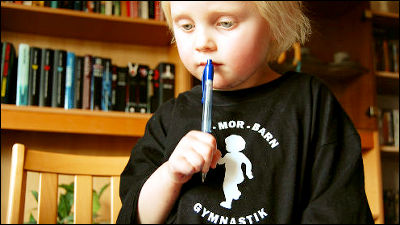It is clear that humans are 'easier to trust algorithms than other humans' in difficult problems

Algorithms using AI are used in various daily situations, such as the recommendation of video distribution services and the route search function of map apps. Amid concerns about the permeation of algorithms into everyday life,
Humans rely more on algorithms than social influence as a task becomes more difficult | Scientific Reports
https://www.nature.com/articles/s41598-021-87480-9
People may trust computers more than humans
https://techxplore.com/news/2021-04-people-humans.html
Regarding the current situation where many people follow algorithms, Eric Bogart, a doctoral student at the University of Georgia, said, 'Algorithms can perform a huge number of tasks, and the number of tasks that can be performed is increasing day by day.' comment. Bogart worked with Professor Rick Watson and Assistant Professor Aaron Schecter at the university to find out whether human decision-making follows others or algorithms.
In this experiment, a total of 1,500 subjects recruited online were given the task of asking them to answer 'the number of people in the picture.' The questions given in the experiment had various difficulty levels, with the simplest question being '15 people' and the most difficult question being '5000 people', and the subjects were of a wide range of difficulty levels. He answered the question.
In addition, the subjects are given two types of advice, 'the number measured by the algorithm trained with 5000 images' and 'the average number collected from 5000 other subjects', and answer by themselves. I was also given the option of following the advice instead of. As a result of the experiment, as the number of people in the picture increased and the difficulty level increased, the percentage of subjects who followed the advice rather than answering by themselves increased. The research team also found that they were more likely to follow the algorithm than the average of other humans.

In addition to making tasks objectively more difficult as the number of people in the picture increases, Schecter points out that people tend to think that 'computers are good at counting something.' As a matter of fact, the algorithm using AI is affected by various biases in recognizing humans, but the subjects were still more likely to trust the algorithm than other humans.
AI bias may not be so relevant for the task of simply 'counting people in the picture', but it is biased towards AI used in areas such as 'loan approval' and 'providing medical advice'. It's a big problem if it exists. People tend to think that 'the job of making judgments based on various numbers is suitable for algorithms', but due to the influence of social factors that are difficult to consider, dependence on algorithms can lead to discriminatory practices. There is also, says Schecter.
In recent years,

Related Posts:
in Note, Web Service, Posted by log1h_ik







